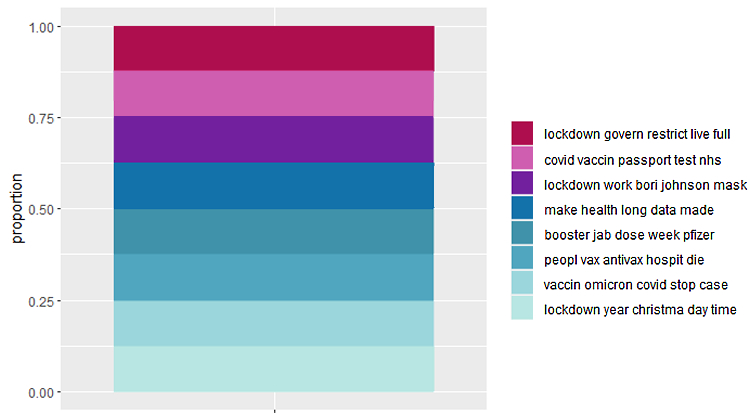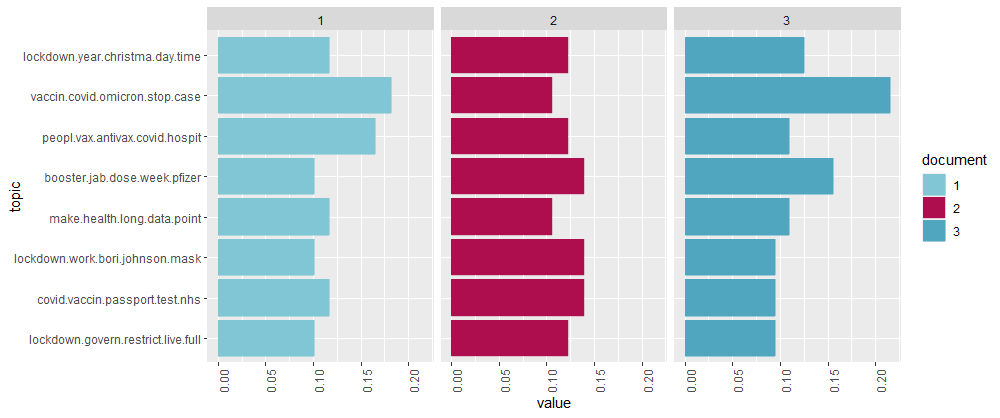The topic modeling of the « sanitary measures » sub-corpus in English is strongly connected to the keywords used for collecting tweets. Moreover, it differs little from the observed results concerning the « vaccination » sub-corpus, regardless of the algorithm used (LDA or CTM, see Blog 9). Two main axes are here underpinned: (1) restrictive political measures (lockdown, sanitary passport, curfew and mask-wearing), (2) vaccination (booster, children vaccination, side effects and unvaccinated people).
Topic modeling LDA
Topic modeling CTM

Considering the percentage obtained for each of these axes, in terms of representation in the corpus (samples of 50 most frequently used common words), the axis of restrictive political measures reaches a score of 43.9%. In the “vaccination” sub-corpus, this trend is less pronounced since the percentage of representativeness of this theme drops to 8.24%. However, these two notions should not be distinguished so easily. Also, vaccination campaigns have a strong political connotation: vaccination was then key to obtaining a health/vaccination passport, and in Austria, it was announced as becoming compulsory for all citizens.
Political and health considerations are therefore intrinsically linked. They are also strongly connected to the news (and therefore to news media, which relays the measures adopted by governments). It now requires a bit of contextualization regarding the sanitary measures adopted in each of the nine countries of the corpus, when the contagiousness of the Omicron variant raised fears. In addition, in each of these countries, demonstrations were organized in December 2021 to protest against governments and their political management of the crisis. These movements were not always well perceived, with many Twitter users associating these protests with antivaccine people or other extremist movements. One possible explanation is a global acceptance of reducing human rights and freedom when the purpose is to act in the name of public health.

